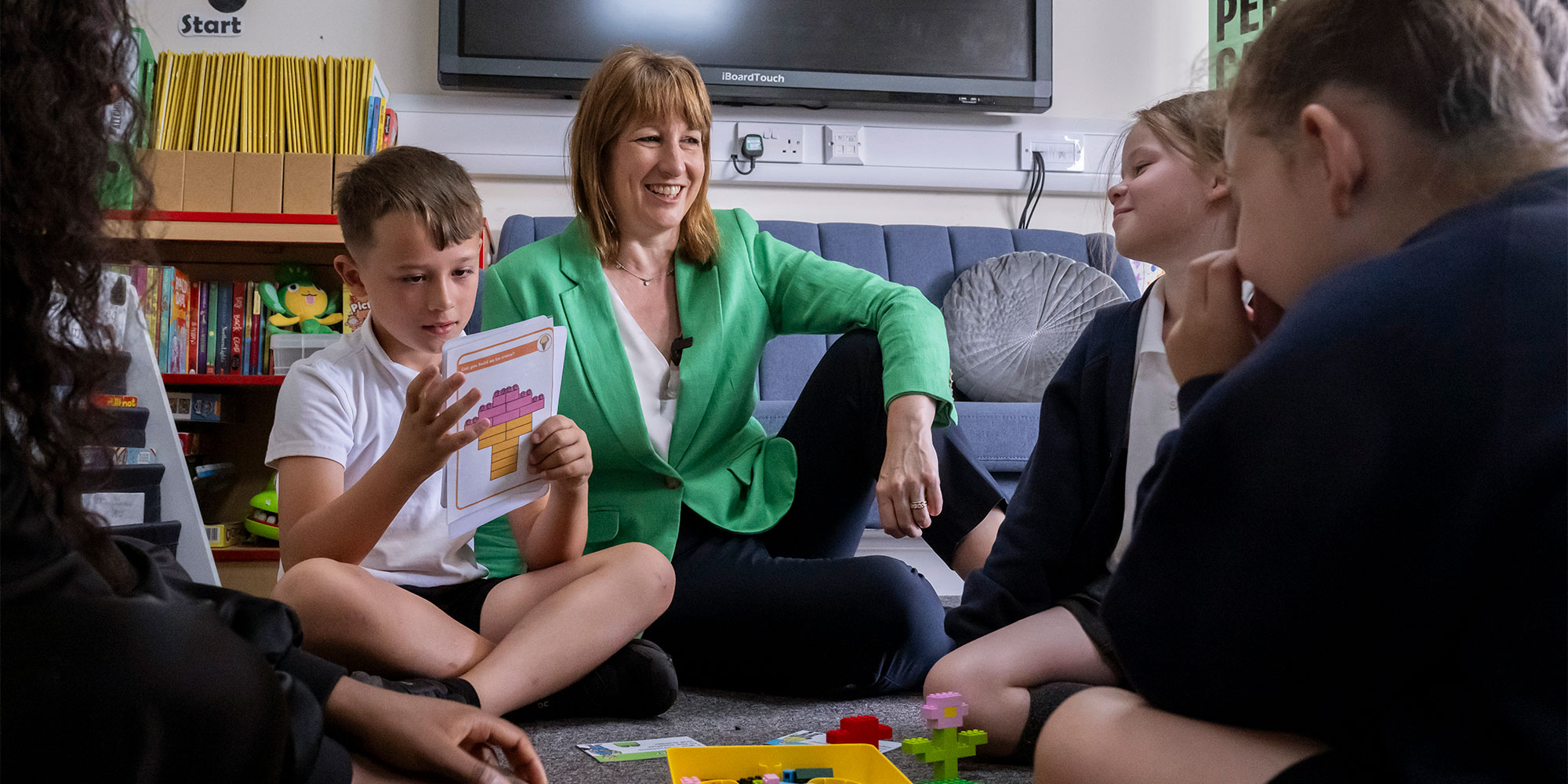
Make money make sense
Make every penny count with expert, impartial advice for just £49 a year – plus, get a £10 M&S voucher.
Join Which? MoneyJoin by midnight on 15 February 2026 and receive a £10 M&S gift card.

Chancellor Rachel Reeves has confirmed that the two-child benefit cap will be lifted from April 2026, in today's Budget speech.
The two-child benefit cap stops families from receiving additional benefits when they have a third or subsequent child, and has been criticised as a key driver of child poverty.
Here, Which? explains what's changing, what it means for your finances and the other welfare reforms the Chancellor announced.
The two-child benefit cap, introduced by the Conservative government in 2017, stops families from receiving Universal Credit for a third or further children born on or after 6 April 2017.
Families receiving Universal Credit typically receive an additional £3,514 per year for each child they have, but the two-child cap means they can't receive these welfare payments for a third or subsequent child.
Under current rules, families may be eligible for additional payments in special circumstances, such as when a child was born as part of a multiple birth or adopted from local authority care.
The cap has been widely criticised as a key driver of child poverty by charities, MPs and campaign groups. 1.7 million children are affected by the policy, and analysis by Child Poverty Action Group shows that 109 children are pulled into poverty every day as a result of the cap.
The Chancellor has announced that the two-child limit will be abolished, meaning that from April, families will be eligible for £3,647 per child per year for all children in their household born after April 2017 (taking into account the 3.8% inflation-based benefits uplift).
The change will increase benefit payments to 560,000 families by an average of £5,310, according to the Office for Budget Responsibility.
The Government estimates that this measure will reduce child poverty by 450,000 by 2029-30.
Chief Executive of Child Poverty Action Group Alison Garnham said: 'Scrapping the two-child limit will be transformational for children. This is a much-needed fresh start in our country’s efforts to eradicate child poverty and while there is more to do it gives us strong foundations to build on. Every child deserves the best start in life and with today’s decision government has done the right thing.'

Make every penny count with expert, impartial advice for just £49 a year – plus, get a £10 M&S voucher.
Join Which? MoneyJoin by midnight on 15 February 2026 and receive a £10 M&S gift card.
As of April 2026, families receiving Universal Credit will be eligible for just over £3,647 for each child in their household born after April 2017.
From next year, a family with three children born after April 2017 will be eligible for around £10,942 of the child element of Universal Credit per year. Under the two-child cap, they would have received just over £7,294.
However, many families won't receive full payments for all children in their household due to the benefit cap (currently £25,323 for Greater London and £22,020 for the rest of the UK), which limits the total amount of welfare payments working-age households can receive.
According to figures from the Joseph Rowntree Foundation, there are currently 141,000 children in families who won’t benefit from the scrapping of the two-child limit due to benefit capping, and more will hit the benefit cap now that the two-child limit has been lifted.
Charities have called for the introduction of a protected minimum floor in Universal Credit, which would limit the total amount of money that could be taken from a household’s welfare payments, in order to fully realise the benefits of lifting the two-child cap.
The two-child cap does not affect child benefit, and there is no upper limit to the number of children you can claim for.
In 2025-26 you receive £26.05 per week for your eldest child and £17.25 for each subsequent child. Child benefit is set to rise by 3.8% in April 2026, meaning families will be eligible for £27.05 (rounded to the nearest 5p) for their eldest child and £17.90 for each additional child.
The amount paid in working-age benefits will increase by 3.8% from April 2026, in line with inflation. The Universal Credit standard allowance will increase by over 6%, under changes introduced in the Universal Credit Act 2025.
Under changes to Universal Credit announced earlier this year, those who receive the standard allowance will receive £98 per week from April 2026, up from £91 per week currently. This will equate to an additional £364 per year.
However, the additional payment for people who have a long-term health condition or disability that affects their ability to work will be halved for new claimants. From April 2026, new claimants of the Limited Capability for Work-Related Activity (LCWRA) will receive £50, instead of £94.
The Chancellor also announced changes to Motability – a scheme that allows disabled people to use their personal independence payment (Pip) benefit to lease a car.
VAT relief on additional payments made to lease more expensive cars will be removed from July 2026, and vehicles will be subject to insurance premium tax at the standard rate.
Luxury vehicles have been removed from the scheme – brands including Alfa Romeo, Audi, BMW and Mercedes are no longer available via Motability.
The Help to Save scheme – which was set to end in 2027 – is being made permanent and expanded to people who receive the caring or child element of Universal Credit from April 2028.
The scheme is currently open to people who work and receive Universal Credit. It allows eligible savers to put away up to £50 a month and receive a tax-free 50% bonus after two and four years, up to a maximum of £1,200.